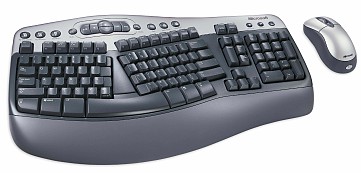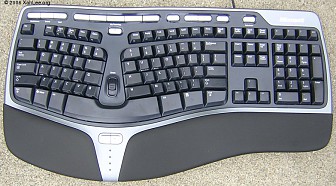Subtle Differences in Keyboard Have Major Impact on Hand-Health and How You Press Keys
Subtle Differences in Keyboard Have Major Impact on Hand-Health and How You Press Keys
WHAT keyboard you use has significant influence on your habit, and the optimal keybinding, or methods to press keys.
Is it laptop keyboard? is it full sized keyboard? Does it have shallow keys like Apple's Aluminum Slab? 〔see Apple keyboard A1242. Year 2009〕 Or deep clicky keys like the IBM Model M keyboard (1985)? For example, on a laptop keyboard, swapping Ctrl and CapsLock is a good advice, but on a full-sized keyboard a more optimal way is palm-control technique.
Even with full sized keyboard, there are major differences that effect keybinding choice or keyboarding habit. Is it standard Microsoft Keyboard or Ergonomic Keyboard ? For example, on ergonomic keyboard made by Microsoft, such as Microsoft Sculpt Ergonomic Keyboard , it makes a lot sense to make heavy use of Alt keys, because they are big and right under thumbs.
Or, you may arguing against using mouse, but if on laptop, the trackpad is quite more effective in placing cursor at arbitrary positions. For someone using a touch screen, it's even better.
Here is a personal example, about a very subtle difference of keyboard, that created a RSI problem for me.
From 2005 to 2008, i was using the classic Microsoft Wireless Natural Multimedia keyboard.
In about 2009, i switched to the new model Microsoft Natural 4000.
The new keyboard got more ergonomic curves, seems to be a improvement. However, ON THE 4000 KEYBOARD i developed a habit to press the {1, 2} keys by twisting my left wrist to the left and press it with my middle finger (instead of using pinky and not turning wrist. (because, SOMEHOW on this new model, it's harder to press the 1 with pinky)). Then, i developed RSI symptoms. One morning, i woke up, even before touching the keyboard, my left hand forearm got this tingle sensation. It is a extremely scary experience. RSI cause is very difficult to track down. After panicking for weeks, i eventually tracked it down to this wrist movement. For the full story, see: Programer Hand Pain. vim Escape Key Syndrome (2010) .
Another personal example is when i switched to a mechanical keyboard. There's this {j, k} keyboard shortcuts to move to {previous, next} posts on {gmail, Google Plus, twitter, facebook, etc}, but somehow i just don't use those keys, but with mechanical keys, i started to use those shortcuts spontaneously. For detail, see: Mechanical Keyboard and Repetitive Strain Injury .
 Microsoft Wireless Natural Multimedia keyboard (2004)
Microsoft Wireless Natural Multimedia keyboard (2004) Microsoft Natural Ergonomic Keyboard 4000 (2005)
Microsoft Natural Ergonomic Keyboard 4000 (2005)